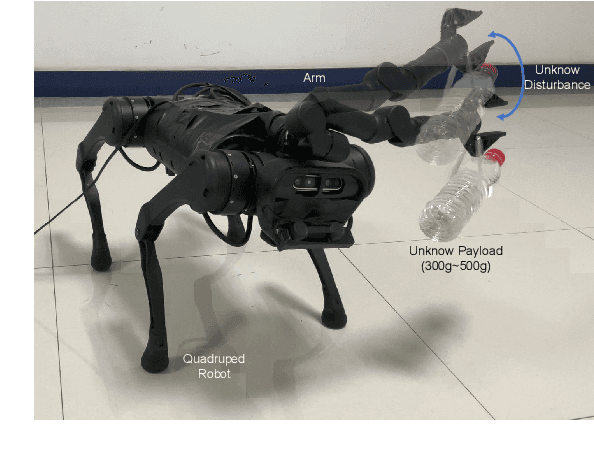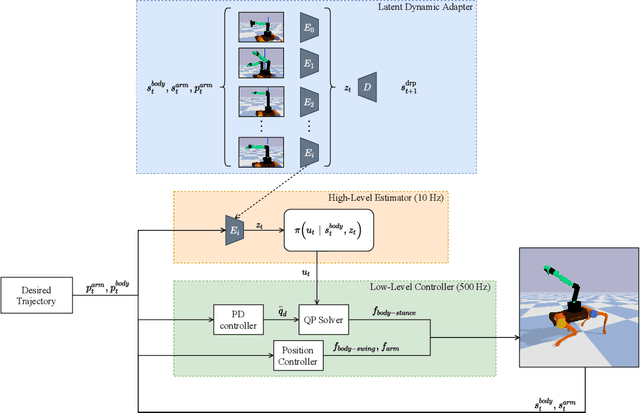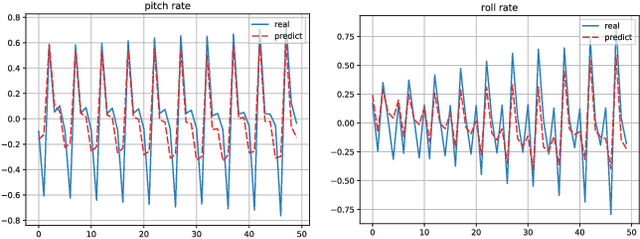Linghan Meng
A Transferable Legged Mobile Manipulation Framework Based on Disturbance Predictive Control
Mar 02, 2022



Abstract:Due to their ability to adapt to different terrains, quadruped robots have drawn much attention in the research field of robot learning. Legged mobile manipulation, where a quadruped robot is equipped with a robotic arm, can greatly enhance the performance of the robot in diverse manipulation tasks. Several prior works have investigated legged mobile manipulation from the viewpoint of control theory. However, modeling a unified structure for various robotic arms and quadruped robots is a challenging task. In this paper, we propose a unified framework disturbance predictive control where a reinforcement learning scheme with a latent dynamic adapter is embedded into our proposed low-level controller. Our method can adapt well to various types of robotic arms with a few random motion samples and the experimental results demonstrate the effectiveness of our method.
Measuring Discrimination to Boost Comparative Testing for Multiple Deep Learning Models
Mar 09, 2021



Abstract:The boom of DL technology leads to massive DL models built and shared, which facilitates the acquisition and reuse of DL models. For a given task, we encounter multiple DL models available with the same functionality, which are considered as candidates to achieve this task. Testers are expected to compare multiple DL models and select the more suitable ones w.r.t. the whole testing context. Due to the limitation of labeling effort, testers aim to select an efficient subset of samples to make an as precise rank estimation as possible for these models. To tackle this problem, we propose Sample Discrimination based Selection (SDS) to select efficient samples that could discriminate multiple models, i.e., the prediction behaviors (right/wrong) of these samples would be helpful to indicate the trend of model performance. To evaluate SDS, we conduct an extensive empirical study with three widely-used image datasets and 80 real world DL models. The experimental results show that, compared with state-of-the-art baseline methods, SDS is an effective and efficient sample selection method to rank multiple DL models.
 Add to Chrome
Add to Chrome Add to Firefox
Add to Firefox Add to Edge
Add to Edge